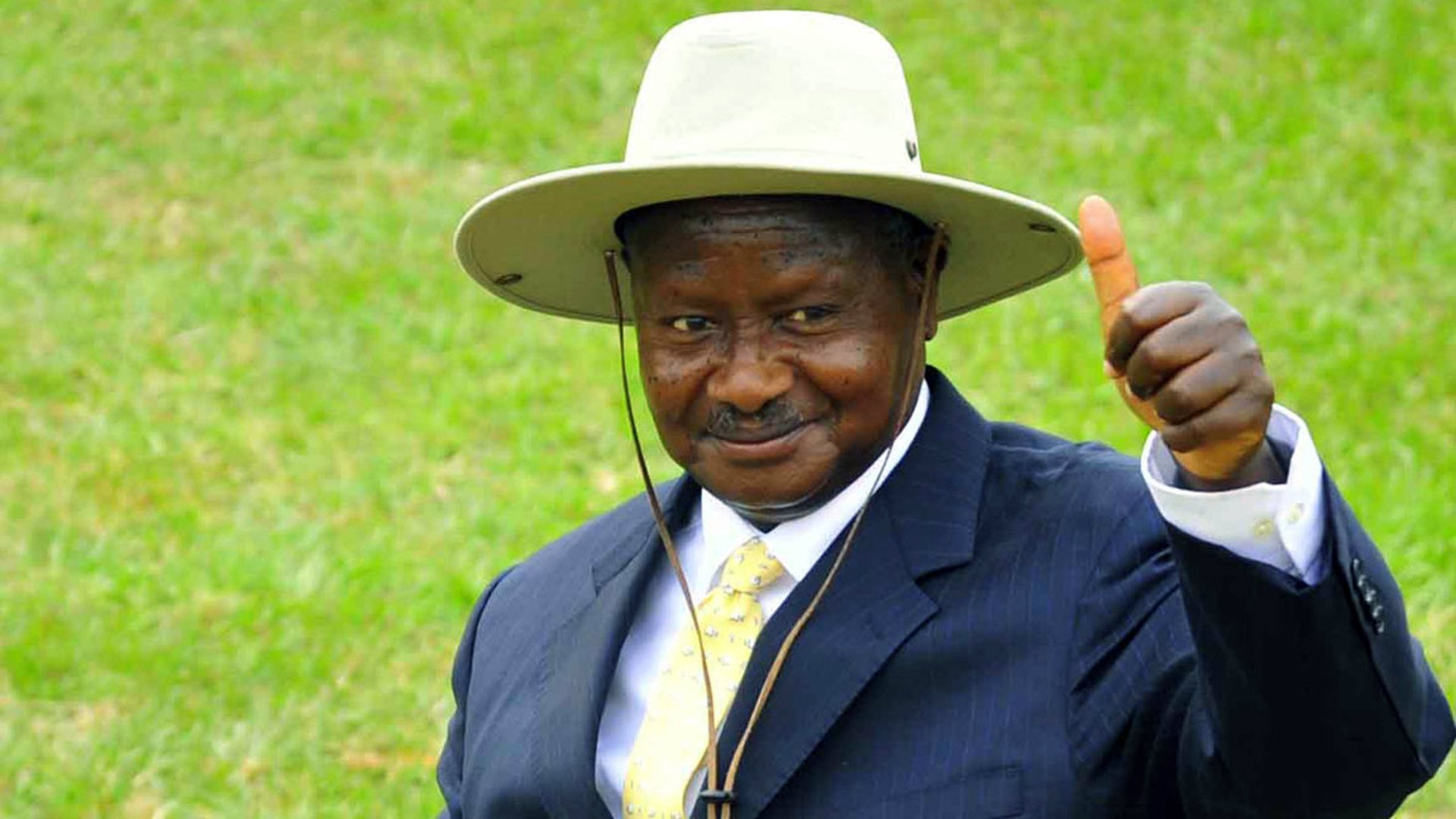What 2016’s most popular social media memes tell us about how young Africa sees itself
For Africa’s biggest economies, 2016 has largely been a year to forget thanks to falling commodity prices and slowing China demand. But economic gloom did not stop young Africans managing to see the funny side of global issues from an African perspective.


For Africa’s biggest economies, 2016 has largely been a year to forget thanks to falling commodity prices and slowing China demand. But economic gloom did not stop young Africans managing to see the funny side of global issues from an African perspective.
From Brexit to the unprecedented US presidential campaign and day to day African challenges, there was plenty to apply humor with a healthy dose of African self-awareness. Social media also helped correct the misrepresentation of reality on the continent.
Here’s a look at the themes that defined the most popular social media trends and memes across Africa in 2016.
Elections, African-style
Britain’s historic Brexit referendum vote to leave the European Union in June came with serious concerns about the economic ramifications for some of Africa’s largest economies. But David Cameron’s resignation in the wake of the vote also reminded many of us that African leaders are not known for being so quick to fall on their sword regardless of their mistakes. Thus started a string of tweets about the more likely alternate turn of events if the former British prime minister was an African president.
Inevitably, the trend of African “presidents for life”, a tendency to remain in office for decades while winning contentious elections, was highlighted.
The colorful and, at times disturbing, race to the White House between Donald Trump and Hillary Clinton was well-covered globally. Africans highlighted the weaknesses of the continent’s electoral processes by offering an alternate version of events if the elections were held in an African country.
In fact by regularly making comments seen to undermine his country’s electoral system during the campaign, Donald Trump allowed Africans to mock America’s democracy—previously regarded as the gold standard around the world. But beneath the humorous tweets, the #Nov8AfricanEdition and #IfDavidCameronWasAfrican trends both highlighted the worst flaws in elections and electoral processes in many countries on the continent: leaders seeking to wrongfully extend their tenures, a crackdown on political opponents and curbing free speech through social media bans during elections
Get it right
For years, Africa has been portrayed in global media without nuance. From news media to pop culture, the continent is often portrayed literally as a country, with national borders airbrushed out of existence. But that trend is starting to be more frequently called out—especially on social media.
Ghanaians recently turned on CNN, the global news giant, for “misrepresenting” the country in an article during its presidential elections. Using #CNNGetItRight, Ghanaians criticized the network’s suggestion that food shortages are rife in the West African country, eventually forcing CNN to acknowledge its error.
But traditional media isn’t always the culprit when it comes to misrepresenting Africa. In July, Louise Linton, a Scottish actress, felt the brunt of a continent tired of cliched depictions. In a memoir titled “In Congo’s Shadow: One girl’s perilous journey to the heart of Africa“, Linton wrote about spending her gap year in Zambia in 1999. In excerpts published by UK’s Telegraph newspaper, she described herself famously as a “skinny white muzungu” who survived attacks from gun and machete-wielding rebels.
But Linton’s book was heavily criticized for being inaccurate, delusional and patronizing on social media. The accounts of surviving violent conflicts were particularly dismissed as outright fabrication given Zambia’s reputation as one of the continent’s most peaceful and stable countries (pdf). On social media, under the hashtag #LintonLies, Zambians called out Linton.
Following the criticism from Zambians and Africans in general, Linton’s book was pulled from the shelves within weeks.
Fancy a challenge?
Unsurprisingly, some of the continent’s most popular social media memes were just plain fun. In July, when Yoweri Museveni, president of Uganda, stopped his motorcade to make a roadside call, Ugandans saw the funny side and began adopting similar poses in what was tagged the #M7Challenge.
Similarly, Cameroonians were quick to notice how Pierre Ishmael Bidoung Kpwatt, the country’s minister of sports, had obsequiously bowed for long-term president Paul Biya at a state dinner.
Right on cue, Cameroonians sought to replicate the minister’s pose nicknaming it the #BidoungChallenge.
Meme of Africa
Amid the many pose challenges and satirical version of events, the standout pick for the most popular meme across the continent is the photo of a four-year old Ghanaian boy, Jake Amo.
The picture was initially shared on Instagram by Solomon Adufah, a US-based Ghanaian artist, but it went on to become handy comedy material tagged with various captions and photo-shopped versions.
Jake’s personal story also became as popular as the picture. An enthusiastic art student in Ghana, Jake lives in Asempanaye, a village north of Ghana’s capital city, Accra. The viral picture that launched his internet stardom was taken while he attended an art workshop organized by Adufah. But while Jake and many other kids like him in Asempanaye are eager to learn, their education is often hampered by a lack of funds. To help solve that problem, Adufah has launched a crowdfunding campaign to raise money for Jake’s tuition and provide school supplies and has raised over $13,000 so far.
Think we covered the best ones? Send us your favorite memes and trends on social media across Africa. @qzafrica
.